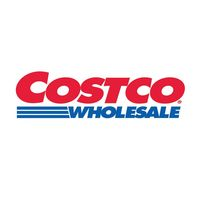Navigating the Retail Landscape: Costco's Resilience Amid Tariff Challenges
April 8, 2025, 4:46 am
In the ever-shifting world of retail, Costco stands as a fortress. The company’s CEO, Ron Vachris, recently addressed the looming specter of tariffs and their potential impact on prices. He painted a picture of resilience, emphasizing that Costco will not buckle under pressure. Instead, it will leverage its global buying power and strong supplier relationships to keep prices low for its members.
Costco’s business model is like a well-oiled machine. One-third of its U.S. sales come from imports. Yet, Vachris reassured investors that the company is prepared to weather the storm. He acknowledged the challenges posed by foreign exchange and tariffs but insisted that Costco remains agile. The goal? Minimize cost increases for members.
The retail giant has a history of creativity in tough times. Back in 2021, when supply chains were in disarray, Costco took matters into its own hands. It rented container ships to bypass the global shipping crisis. This proactive approach has become part of Costco’s DNA.
Vachris noted that less than half of the imported items come from China, Mexico, and Canada. This diversification is a strategic advantage. While Walmart claims that two-thirds of its goods are domestically produced, Costco’s model allows it to adapt quickly to changing market conditions. Analysts predict that both companies will emerge with resilient earnings despite the new tariffs.
The current economic climate has shifted consumer behavior. Costco’s CFO, Gary Millerchip, observed that shoppers are now more focused on quality, value, and novelty. Members are spending, but they are doing so with purpose. The return of inflation and the potential impact of tariffs have made consumers more discerning.
Costco’s ability to adapt is crucial. The company has nearly 900 stores worldwide and generated $250 billion in sales in 2024. It’s a behemoth in the retail space, and its strategies will be closely watched as the economic landscape evolves.
Meanwhile, in a different corner of the business world, another story unfolds. The launch of ROCK'N Vodka by entrepreneur Andy Roiniotis and rock legend Rick Nielsen offers a glimpse into the spirit industry’s challenges and triumphs. Roiniotis, tired of building other people’s brands, took a leap of faith in 2019. He partnered with Nielsen, who is not just a rock star but also a savvy investor.
Their vodka, made from sugarcane and local water, stands out in a crowded market. It’s not just about the product; it’s about the story. Nielsen’s involvement adds a layer of celebrity appeal. The vodka has won awards and is now available in over 2,400 locations, including major retailers like Walmart and Costco.
What sets ROCK'N Vodka apart is its unique investment model. Fans can not only drink the vodka but also invest in it. This innovative approach has attracted over 1,600 investors, raising more than $2.4 million. It’s a fresh take on consumer engagement, blending the worlds of spirits and investment.
Roiniotis and Nielsen have big plans. They’ve expanded their offerings to include gin and whiskey through a partnership with Kennay Farms Distilling. Their bourbon, humorously named Five Neck Bourbon after Nielsen’s iconic guitar, is a testament to their creative branding.
The stories of Costco and ROCK'N Vodka highlight the resilience and adaptability required in today’s business landscape. Both companies face unique challenges but respond with innovation and strategic thinking.
Costco’s focus on maintaining low prices amidst tariff pressures is commendable. The company’s ability to pivot and adapt to changing consumer behavior is a key strength. As inflation looms, Costco’s commitment to value will resonate with its members.
On the other hand, ROCK'N Vodka’s entrepreneurial spirit shines through. Roiniotis and Nielsen have carved a niche in the competitive spirits market. Their willingness to engage fans as investors is a bold move that could redefine how brands connect with consumers.
In conclusion, the retail and spirits industries are in a state of flux. Companies like Costco and ROCK'N Vodka exemplify the importance of resilience and innovation. As they navigate challenges, their stories serve as a reminder that adaptability is key. In a world where change is the only constant, those who embrace it will thrive.
The future remains uncertain, but one thing is clear: both Costco and ROCK'N Vodka are ready to face whatever comes next. Their journeys will be closely watched as they continue to evolve in an ever-changing landscape.
Costco’s business model is like a well-oiled machine. One-third of its U.S. sales come from imports. Yet, Vachris reassured investors that the company is prepared to weather the storm. He acknowledged the challenges posed by foreign exchange and tariffs but insisted that Costco remains agile. The goal? Minimize cost increases for members.
The retail giant has a history of creativity in tough times. Back in 2021, when supply chains were in disarray, Costco took matters into its own hands. It rented container ships to bypass the global shipping crisis. This proactive approach has become part of Costco’s DNA.
Vachris noted that less than half of the imported items come from China, Mexico, and Canada. This diversification is a strategic advantage. While Walmart claims that two-thirds of its goods are domestically produced, Costco’s model allows it to adapt quickly to changing market conditions. Analysts predict that both companies will emerge with resilient earnings despite the new tariffs.
The current economic climate has shifted consumer behavior. Costco’s CFO, Gary Millerchip, observed that shoppers are now more focused on quality, value, and novelty. Members are spending, but they are doing so with purpose. The return of inflation and the potential impact of tariffs have made consumers more discerning.
Costco’s ability to adapt is crucial. The company has nearly 900 stores worldwide and generated $250 billion in sales in 2024. It’s a behemoth in the retail space, and its strategies will be closely watched as the economic landscape evolves.
Meanwhile, in a different corner of the business world, another story unfolds. The launch of ROCK'N Vodka by entrepreneur Andy Roiniotis and rock legend Rick Nielsen offers a glimpse into the spirit industry’s challenges and triumphs. Roiniotis, tired of building other people’s brands, took a leap of faith in 2019. He partnered with Nielsen, who is not just a rock star but also a savvy investor.
Their vodka, made from sugarcane and local water, stands out in a crowded market. It’s not just about the product; it’s about the story. Nielsen’s involvement adds a layer of celebrity appeal. The vodka has won awards and is now available in over 2,400 locations, including major retailers like Walmart and Costco.
What sets ROCK'N Vodka apart is its unique investment model. Fans can not only drink the vodka but also invest in it. This innovative approach has attracted over 1,600 investors, raising more than $2.4 million. It’s a fresh take on consumer engagement, blending the worlds of spirits and investment.
Roiniotis and Nielsen have big plans. They’ve expanded their offerings to include gin and whiskey through a partnership with Kennay Farms Distilling. Their bourbon, humorously named Five Neck Bourbon after Nielsen’s iconic guitar, is a testament to their creative branding.
The stories of Costco and ROCK'N Vodka highlight the resilience and adaptability required in today’s business landscape. Both companies face unique challenges but respond with innovation and strategic thinking.
Costco’s focus on maintaining low prices amidst tariff pressures is commendable. The company’s ability to pivot and adapt to changing consumer behavior is a key strength. As inflation looms, Costco’s commitment to value will resonate with its members.
On the other hand, ROCK'N Vodka’s entrepreneurial spirit shines through. Roiniotis and Nielsen have carved a niche in the competitive spirits market. Their willingness to engage fans as investors is a bold move that could redefine how brands connect with consumers.
In conclusion, the retail and spirits industries are in a state of flux. Companies like Costco and ROCK'N Vodka exemplify the importance of resilience and innovation. As they navigate challenges, their stories serve as a reminder that adaptability is key. In a world where change is the only constant, those who embrace it will thrive.
The future remains uncertain, but one thing is clear: both Costco and ROCK'N Vodka are ready to face whatever comes next. Their journeys will be closely watched as they continue to evolve in an ever-changing landscape.

